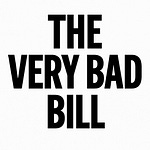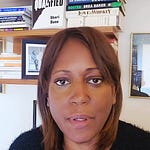“Black women are the canaries in the workplace coal mine, and they have been signaling for years that something is devastatingly wrong.”
— Qualified: How Competency Checking and Race Collide at Work, by Shari Dunn
In Chapter 7 of Qualified, I focus on a truth so many Black women know in their bones: We don’t just want to lead. We want to breathe. We want to belong. Too often, the cost of being seen as competent is being treated as a threat.
This chapter is titled For Black Girls Who’ve Considered Quitting When Sisterhood Would’ve Been Enough, because we have considered it (quitting), and sisterhood would mean so much.
We are the ones you come to for clarity. For calm. For “saving the day.” And yet, when we try to lead with that same clarity, we’re told we’re too confident. Too angry. Too ambitious. Too... everything.
This week, I revisit three truths from the book and explain why Black women are not just the canaries in the workplace but the ones holding up the cracking walls.
Ekaette Kern: From Oprah to “Aggressive”
Marketing executive Ekaette Kern was welcomed, until she was competency checked for stepping into her role as a leader. Early on, her white women colleagues said:
“You’re like Oprah, or you’re like Iyanla Vanzant.”
That may sound affirming, but it wasn’t. It was about a type of stereotyping that is older than the modern workplace. A core need to see Black women only in the role of helper, affirming one-dimensional beings, not fully realized, or human. She describes being accepted as long as she listened to their problems and soothed them, but not when she set boundaries.
“I was always very pleasant, but I was very direct,” she said.
“But my directness was very offensive. I was told I was unapproachable and aggressive.”
This is what happens when competence doesn’t match comfort. When the moment you act like a leader, they act like you’re the problem.
Juatise Gathings: Shadow Elevation Without the Power or the Pay
Juatise Gathings was working in a major financial services company when the George Floyd protests shifted the national mood. Inside her company, she was (shadow) elevated quickly, made the face of new equity work, asked to speak on behalf of the organization, and featured in public events.
“You have this Black chick that, two years ago, no one at Discover even knew who I was… and there I was sitting side by side with our CEO.”
That visibility was real. She sat on an NPR podcast with her CEO. She was asked to weigh in on strategy, to share her story, to guide the company forward.
But inside? She hit a wall.
Despite her expanded role, higher profile, and documented success, she was not promoted. Not given new authority. Not paid equitably for the emotional labor and representational weight she was carrying.
Even worse: when white male senior leaders tried to champion her for promotion, their efforts were met with quiet but firm resistance (they claimed) mostly from white women.
This is what I call shadow elevation: when a Black woman is publicly raised up as proof of progress, but privately kept in the same place, or even pushed back down. Her voice is amplified, but her power is constrained. Her face is used, but her leadership is denied.
She becomes a symbol of change with no structural change to support her.
It’s one of the most exhausting contradictions Black women face. You are asked to fix the culture without the tools to protect yourself from it.
You are celebrated for surviving a structure that refuses to make room for you to thrive.
And that contradiction — the shine with no shelter — is not just disillusioning. It’s strategic. Because if companies can point to your face in the brochure, they don’t have to change the policies that keep you out of the boardroom.
Kimberlé Crenshaw: The Framework We’re Still Ignoring
When competency checking of Black women occurs, it’s frequently intersectional in that many of their identities are being questioned. Kimberlé Crenshaw, the legal scholar who gave us the term intersectionality. She wrote about how Black women often experience discrimination that isn’t just racism or sexism (and I would add ageism), simultaneously and systemically.
“Black women are discriminated against in ways that often do not fit neatly into the legal categories of ‘racism’ or ‘sexism.’”
— Crenshaw, as cited in Qualified
That’s what makes Black women the canaries: we feel the creeping poisonous air, the pressure, and the pain first. But that toxic air doesn’t stay contained. If the canary dies, the whole mine is poisoned.
The stories in Chapter 7 don’t stop at pain. They offer pathways—strategies I’ve used in my consulting work to help leaders do more than just listen—to act. From how performance reviews are structured to who gets coached to how leadership traits are defined, the solutions are there. But they require willingness. Most of all, they require listening to Black women not just as voices of warning but as architects of change.















Share this post